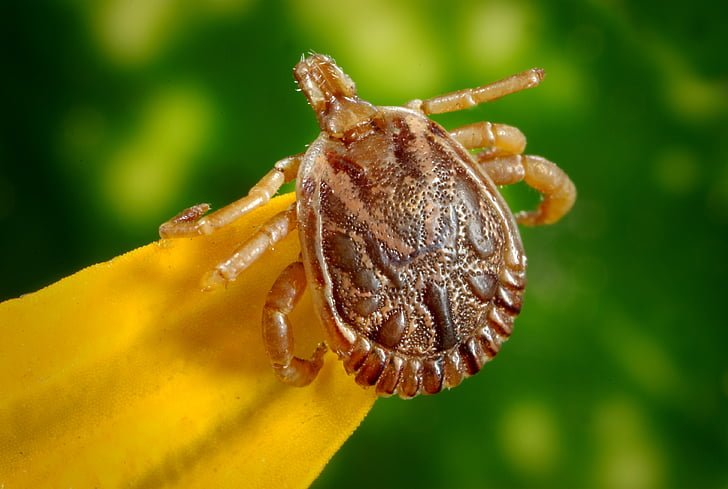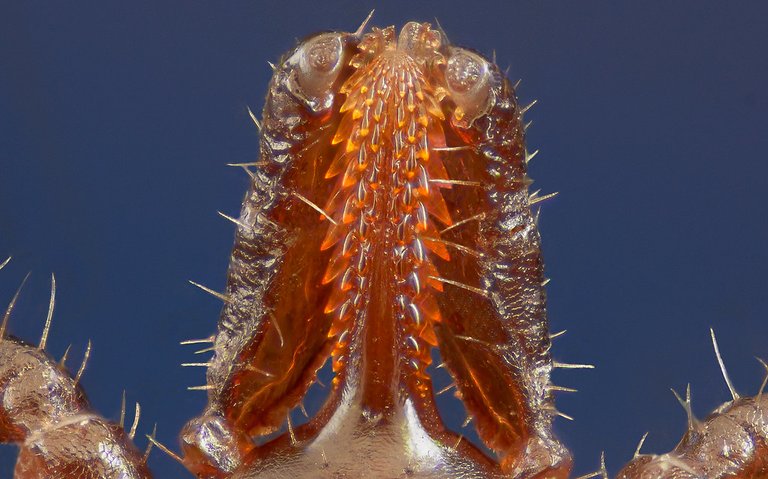I fear for ticks on my dogs because I do not want to lose them and maybe this is because of an event I read sometime back in 2019 when a bull died in North Carolina from exsanguination caused by heavy infestation of Asian longhorned ticks. Asian Longhorned tick is one off the about 850 species of tick around the world and all ticks suck blood, all ticks can carry diseases and the annoying part is when you try to kill them because they are very difficult to kill.
They are found everywhere around the world but are predominant in hot and temperate regions but these doesn't mean they are not found in cold regions because a lot of tick species can withstand freezing weather. They are so keen to survive almost everywhere that a specie of tick known as the Seabird tick are found on penguins in Antarctica.
Ticks are very invasive and they multiply very fast but this doesn't mean that they are continuously looking for that host to latch on. Actually, they are just opportunist, taking everything they can get once they find a host that is willing to shelter and feed them. They stretch their sticky hands known as Howlers organ to hosts in a process known as Host seeking or questing so they find a host to feed on.
It is very rare to see ticks in open places on the body of animals, they would find their way to conceal places such as the inner part of the ear, between paws and fingers, or under furs. With its hook-like harpoon shaped structured mouth with a knife-like structure known as the Chelicerae, it tears into the flesh of the animal or human which helps it from falling off and gives it access to suck blood. When they have successfully hooked themselves to the flesh, they then release a straw-like organ with spikes which makes the organ difficult to remove, and they begin to suck the blood from the host.
While the entire experience looks like that from a horror movie, the host doesn't usually feel this bite as a result of the saliva from the tick which contains pain-numbing properties as well as suppresses the immune system around the area of the wound so it isn't itchy or become inflamed. This is why they can stay on their hosts for days without being detected even when they keep sucking and grow 600 times their normal size.
You wonder why you see tick in an area where you just moved in to even when there are no possible animals around. This is because ticks can survive up to 2 years without a host or blood meal. They only need to feed three times in their lifetime but if they do not find blood meal, they do not grow or reproduce. They can tolerate lack of water for a long period of time and when there is excessive rainfall with too much water, some species of ticks can survive under water for up to three days. It takes a year for a tick to reach sexual maturity but when they do, they can lay up to 3000 eggs.
Let's leave animals for a very short period and discuss their effect on humans. If ticks only sucked blood and reproduced, it would have been something that we can deal with but they come with an array of diseases for humans like Anaplasmosis, Babesiosis, Borrelia mayonii, Bourbon virus, Colorado tick fever, Ehrlichiosis, Tularemia, Heartland virus, lyme disease, powassan virus and a host of others. If you look at the number of diseases transferred by ticks, it beats the record of every other insect both crawling and flying including Mosquitoes.
.
Reference
.
https://www.sciencedirect.com/topics/medicine-and-dentistry/ixodidae
https://study.com/learn/lesson/types-ticks-how-many-species.html
https://www.cdc.gov/dpdx/ticks/index.html
https://my.clevelandclinic.org/health/diseases/7234-tick-bites
https://www.cdc.gov/ticks/about/index.html
https://emedicine.medscape.com/article/786652-overview
https://pmc.ncbi.nlm.nih.gov/articles/PMC10675719/
https://www.ecdc.europa.eu/en/tick-borne-diseases


Thanks for your contribution to the STEMsocial community. Feel free to join us on discord to get to know the rest of us!
Please consider delegating to the @stemsocial account (85% of the curation rewards are returned).
Thanks for including @stemsocial as a beneficiary, which gives you stronger support.